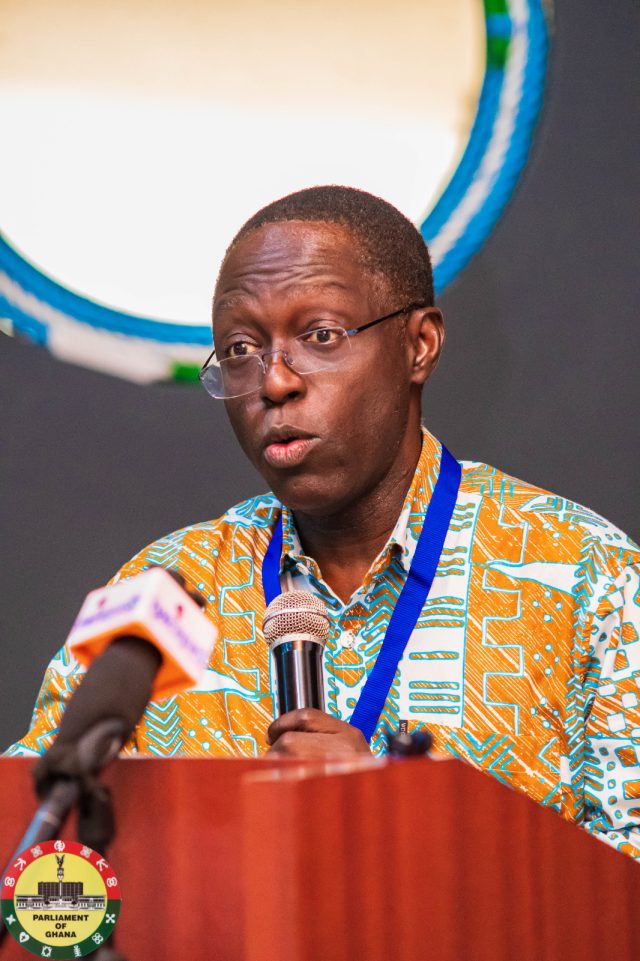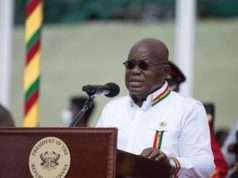Parliament has held a two-day training workshop for members of the Parliamentary Press Corps (PPC) on the newly adopted Standing Orders of the House.
The training programme forms part of a broader effort to modernize parliamentary procedures and align them with contemporary democratic standards.
This followed the adoption of the revised Orders by the House on December 21, 2023, which officially came into effect on January 2, 2024.
The comprehensive revision of the Standing Orders, the first in nearly a quarter-century since the inception of the Fourth Republic, reflects a commitment to evolving parliamentary democracy.
The new Orders incorporate several innovative practices, such as the recital of the National Pledge, conducting parliamentary business through virtual platforms, and a clarified hierarchy of Parliament’s Leadership.
Resource persons included Clerk to Parliament Mr. Cyril K. O. Nsiah, Deputy Clerks Ebenezer Djietror and Gloria S. Kumawu; Legal Advisor to Speaker of Parliament Magnus Kofi Amoatey and lawyer Nana Tawiah-Okyir of the legal Directorate of Parliament.
The workshop’s primary goal was to acquaint the Parliamentary Press with the nuances of the new Orders, following a similar orientation provided to all 275 members of the House.
Delivering the keynote address at the orientation workshop, Speaker of Parliament Alban S.K Bagbin, emphasized the integral role of the media in Ghana’s evolving democratic process.

According to him, for members of parliament together with the parliamentary community, the press is a critical partner in transacting parliamentary business, which is the business of the people.
He acknowledged the media’s role as vital in connecting the government with its citizens.
“There is a yawning gap between the representatives and the people, and that gap can only be linked and closed by a very important group of people or a very important institution referred to as media, both traditional and new media,” he said.
Mr. Alban Bagbin acknowledged the media as indispensable in effectively representing and reflecting the aspirations of the people and stressed the workshop is, therefore, a crucial step in fostering a more informed and participatory democracy.
The Clerk to Parliament, Cyril K.O Nsiah, during his opening address, outlined the necessity of revising the Standing Orders, which had remained largely unchanged for 23 years.
Mr. Nsiah emphasized the challenges that prompted this revision, including the need for greater transparency, the limitations of manual procedures, and the impact of the COVID-19 pandemic on parliamentary operations.
“It is prudent that Parliament refined the processes and procedures in accordance with legislative trends across the Commonwealth,” Nsiah stated and urged the participants to engage fully with the orientation program to bridge the knowledge gap on parliamentary rules and practices.
Echoing the same sentiment, Deputy Clerk Gloria S. Kumawu pointed out the vital role of the workshop in addressing the communication gap that could lead to confusion and misinformation.
“The Media is the channel for disseminating the information from Parliament to the populace,” Kumawu noted, emphasizing the importance of journlists thorough understanding of the new Standing Orders for the sake of good governance and the enhancement of democracy in Ghana.
The workshop marks a significant step toward fostering a collaborative relationship between the Parliament and the media, ensuring that the latter is well-equipped to convey parliamentary proceedings and decisions in the light of the revised Standing Orders to the public accurately.
By doing so, the initiative not only aims to enhance the transparency and accountability of parliamentary processes but also to reinforce the foundation of Ghana’s democracy.
As the new Standing Orders take effect, the emphasis on virtual platforms and streamlined procedures is expected to make parliamentary business more accessible and comprehensible to the general public.
This transition represents a pivotal moment in the ongoing effort for Parliament to adapt its legislative framework to the digital age and the evolving expectations of its citizens for more participatory and transparent governance.









































